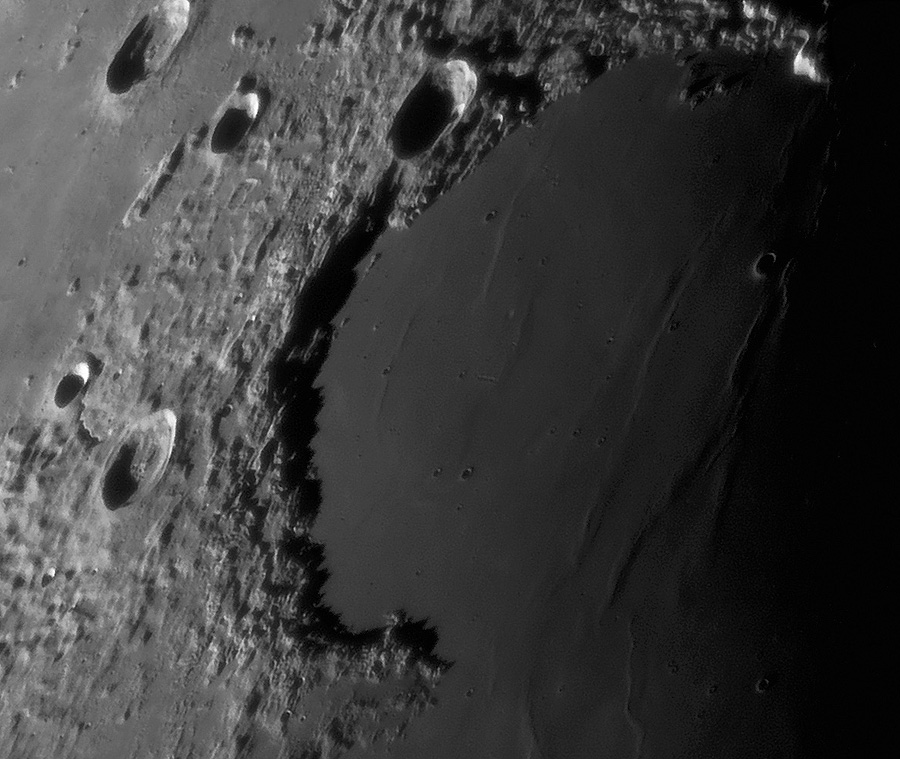image by Paolo Lazzarotti
Having looked at thousands of slightly blurry lunar images we have been tricked into thinking that there are no sharp spots on the Moon. But with incredible optics, hypersensitive cameras, magical computer processing and a little luck with seeing, Paolo Lazzarotti and a few other magician-imagers are now depicting the Moon as it really is. This remarkable view shows sharp pricks of shadows cast by the jagged summits of the Jura Mountains. This is what you’d see from lunar orbit looking at shadows without the smoothing effects of Earth’s moving atmosphere. Crater rims – like this one of the Sinus Iridum crater – are made of angular blocks of ejecta. But these sharp shadows do not mean that the Juras or other places on the Moon are steep spires as imagined 130 years ago by Nasmyth and Carpenter. Most places on the Moon are smooth, but not all. Now tear yourself away from the shadows and notice the crater Bianchini that sits on the Jura near the top of the image. Formation of this 38 km wide crater collapsed a delta of debris that cascaded onto the mare surface. It looks like the maria was already there when the debris came down – if so, rather than the mare embaying the landslide slump, Bianchini is younger than the estimated age of these lavas, about 3.2 billion years.
Technical Details:
10/27/05 at 4:58 UT, 315 mm Dall-Kirkham Spada telescope (f/25), Lumenera Infinity 2-1M camera, Edmund Optics G filter IR blocked, 80 frames stack out of 1000.
Related Links:
Rükl chart 10
Note: If the right column overlaps the image make the browser window wider.
COMMENTS?
Click on this icon File:PostIcon.jpg at the upper right to post a comment.




